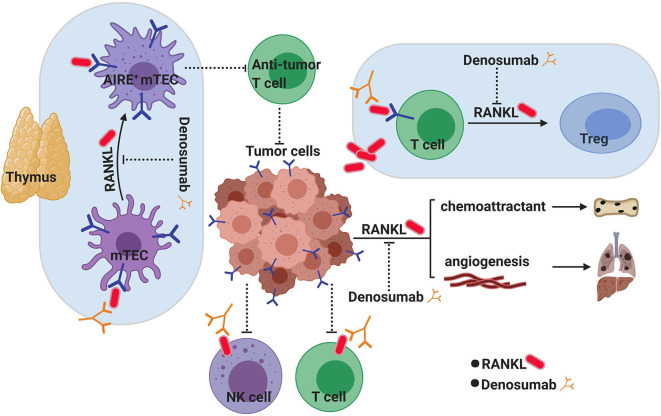Figure 3.
RANKL inhibition as a novel cancer immunotherapy. RANK/RANKL signaling has long been known to play an active role in supporting tumorigenesis through angiogenesis and metastasis both of which can be targeted through RANKL inhibition with Denosumab. However, blocking RANKL has recently gathered promise as a new avenue for cancer immunotherapy which may have complimentary and synergistic effects with known check point inhibitors in fighting cancer. How blocking RANKL achieves this is not known, although several hypotheses exist. In the thymus, the RANKL/RANK pathway is critical for CD80+ AIRE+ medullary thymic epithelial cell (mTEC) maturation and central tolerance. Temporarily blocking central tolerance through blocking RANK/RANKL by Denosumab could potentially increase the generation of more aggressive anti-tumor antigen T cells. Activated T cells and NK cells in the tumor microenvironment (TME) express RANKL on their surface, which can interact with RANK+ tumor cells to induce immunosuppression in these infiltrating cells. Blocking RANKL with Denosumab would overcome this suppression. Tumor-derived RANKL has also been suggested to play a role in converting RANK+ infiltrating T cells into immune-suppressing regulatory T cells (Tregs) in the TME.

